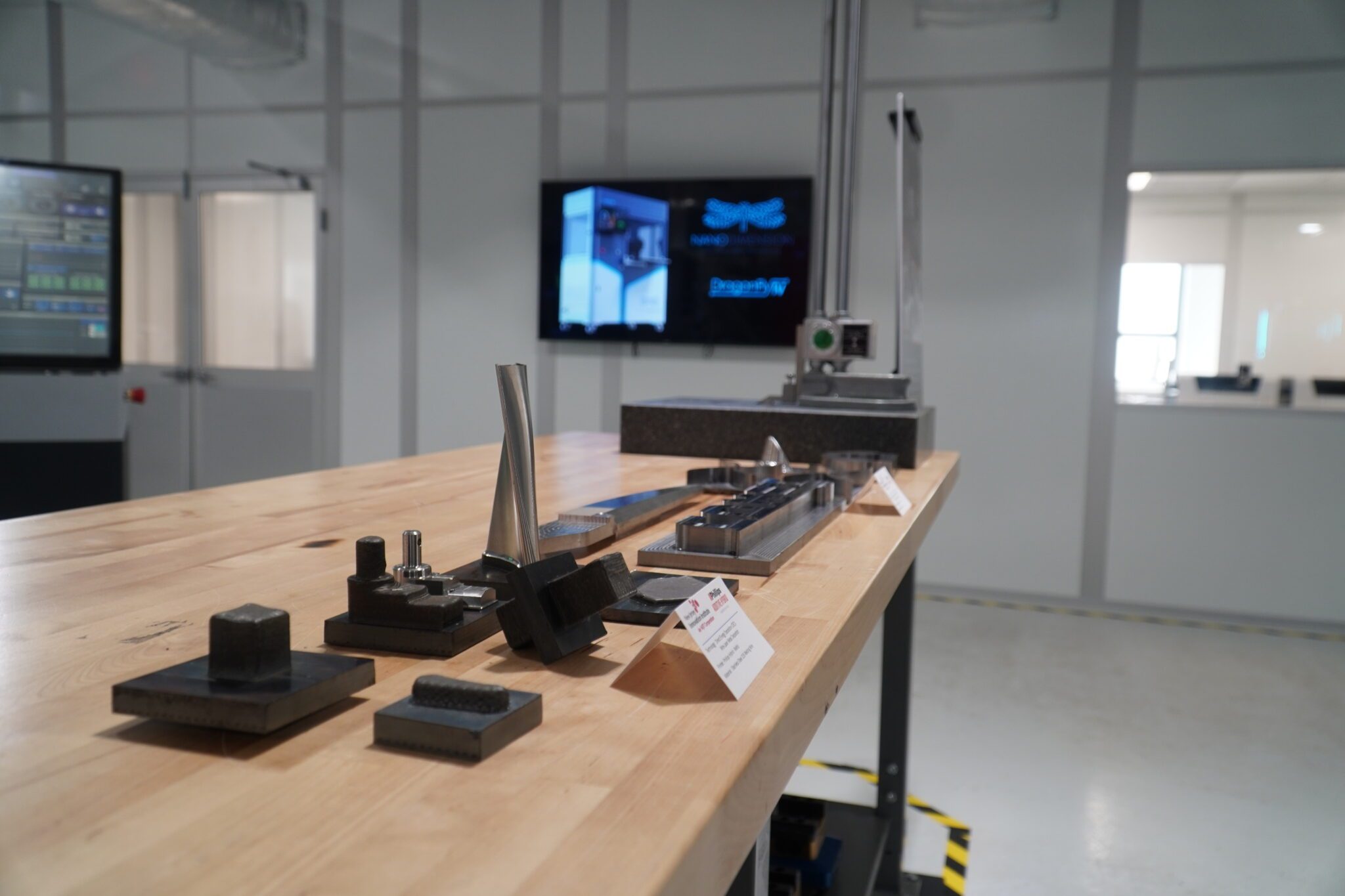When working within the rapidly accelerating field of materials engineering, especially for defense applications, knowing the strength of your material is critical. Additive manufacturing (AM), also known as 3D printing, has revolutionized metal production. However, to ensure these materials meet the rigorous demands of defense applications, tensile testing is essential.
Tensile testing allows engineers to assess how materials perform under stress by stretching them until they break. This process helps identify key characteristics such as tensile strength, yield strength, and ductility which are essential to develop engineering design ‘allowables’. In the Defense Division at New Jersey Innovation Institute (NJII), we emphasize using defined standards to ensure that additively manufactured metals can withstand extreme conditions, such as those encountered in military and aerospace environments.
Why Tensile Testing Matters in Additive Manufacturing
Additive manufacturing offers the unique advantage of creating complex geometries that traditional manufacturing methods cannot achieve. But with these new possibilities come new challenges. Metals produced through AM processes, such as laser powder bed fusion or directed energy deposition, often exhibit different mechanical properties compared to conventionally produced metals – even when accounting for similar alloy compositions. Factors such as build orientation, number of parts on a build plate, surface roughness, residual stresses and how the parts are removed from the build plate can affect the final product’s strength and performance.
Tensile testing provides vital information but performing it in a standardized way, using ASTM E8/E8M, for example, is critical so that the information can reproduced. Therefore – even before tensile testing starts – it is essential that the metal AM parts be heat treated properly according to their alloy composition and then machined to removed surface defects. For defense applications, performing all steps in the process ensures that components such as missile parts, aircraft frames, or armor materials perform as expected, reducing the risk of failure during critical missions.
Advancing Defense Capabilities Through Material Science
At NJII, our focus is on pushing the boundaries of material science for defense. Through rigorous tensile testing, we can verify that additively manufactured metals meet the stringent requirements of defense applications. Whether it’s ensuring that a part can withstand the stresses of high-speed flight or endure harsh environmental conditions, our material engineers work diligently to test and validate these materials.
By following strict testing protocols, and carefully documenting any deviations, we provide the defense industry with confidence in the integrity and durability of the components we develop. This not only enhances the safety of military personnel, but also strengthens the technological capabilities of our nation’s defense systems.
NJII’s Defense Division is committed to the development of advanced manufacturing and 3D Printing technologies and techniques. Our flagship COMET Program combines public and private resources to advance workforce development within additive manufacturing and defense technologies. You can read about COMET here.
